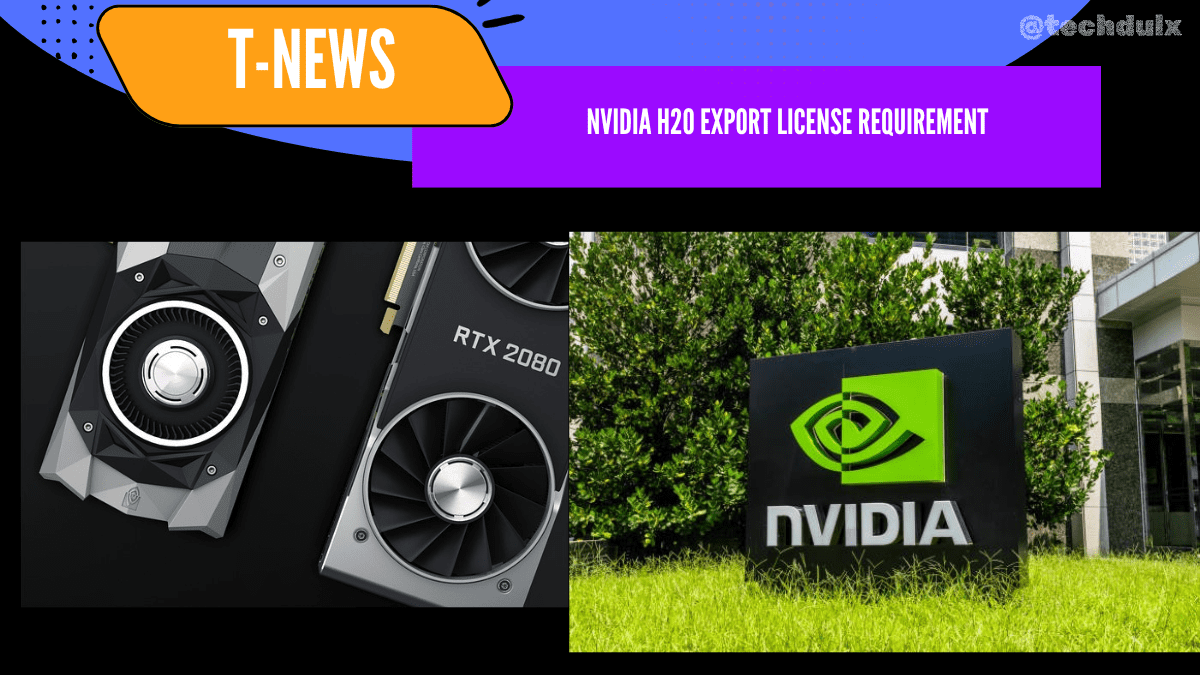On April 15, 2025, the U.S. government introduced a new rule requiring Nvidia to obtain a license to export its H20 AI chips to China. This decision has significant implications for Nvidia and the global tech industry. In this article, we break down the key details, reasons behind the restriction, and what it means for the future.
What Are Nvidia H20 AI Chips?
The Nvidia H20 is a high-performance AI chip designed for advanced computing tasks, such as training large-scale AI models. It is the most powerful chip Nvidia is currently allowed to export to China under existing U.S. regulations. These chips are critical for applications like supercomputing and AI development.
Why Is the U.S. Imposing an Export License?
The U.S. government cited concerns that the H20 chips could be used in a supercomputer in China, posing a potential risk to national security. This decision follows reports that the chips were used to train AI models by DeepSeek, a Chinese AI startup, which raised alarms among U.S. officials.
- National Security Concerns: The U.S. aims to limit China’s access to advanced technology that could enhance its AI and computing capabilities.
- AI Competition: The rise of Chinese AI models, like DeepSeek’s R1, has intensified calls for stricter export controls.
Impact on Nvidia
Nvidia disclosed in a filing that it expects $5.5 billion in charges in its first quarter of fiscal year 2026, ending April 27, due to the new export restrictions. The company’s stock dropped by approximately 6% in extended trading, reflecting investor concerns about the financial impact.
Despite this, Nvidia recently announced plans to invest hundreds of millions of dollars in U.S.-based AI data centers over the next four years. This move is seen as an effort to strengthen its domestic presence amid growing regulatory scrutiny.
What Does This Mean for the Tech Industry?
The export license requirement could reshape the global AI and semiconductor markets. Here are some potential outcomes:
- Supply Chain Shifts: Companies may seek alternative suppliers or develop new chips to comply with regulations.
- Increased U.S. Investment: Nvidia’s commitment to U.S. manufacturing could boost domestic AI infrastructure.
- Global AI Race: Restrictions may slow China’s AI advancements, giving U.S. companies a competitive edge.
Background Context
The decision comes amid ongoing U.S.-China tensions over technology. Last week, reports suggested that Nvidia CEO Jensen Huang met with U.S. officials to discuss export policies. While some speculated that Nvidia might avoid new restrictions, the government proceeded with the license requirement, signaling a firm stance on controlling advanced technology exports.
Conclusion
The U.S. government’s decision to require an export license for Nvidia’s H20 chips marks a significant development in the global tech landscape. While Nvidia faces financial challenges, its strategic investments in the U.S. could pave the way for future growth. Stay tuned for updates as this situation evolves.
Frequently Asked Questions
What is the Nvidia H20 chip used for?
The H20 chip is used for high-performance computing, particularly in AI model training and supercomputing applications.
Why is the U.S. restricting H20 exports?
The U.S. is concerned that these chips could be used in Chinese supercomputers, posing a national security risk.
How will this affect Nvidia’s business?
Nvidia expects $5.5 billion in charges and a potential loss of market share in China, though its U.S. investments may offset some impacts.
